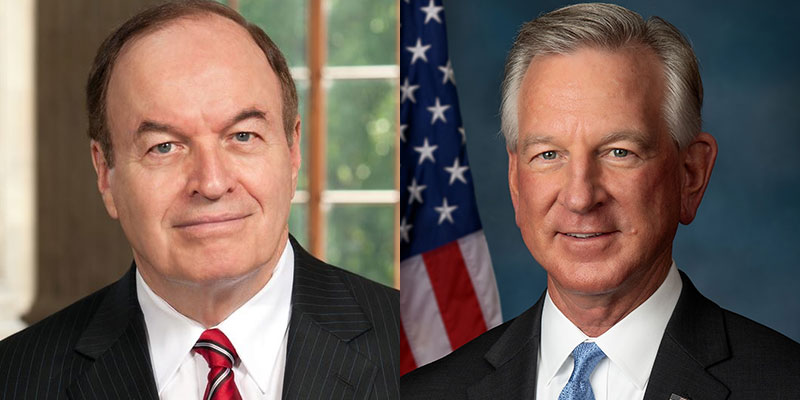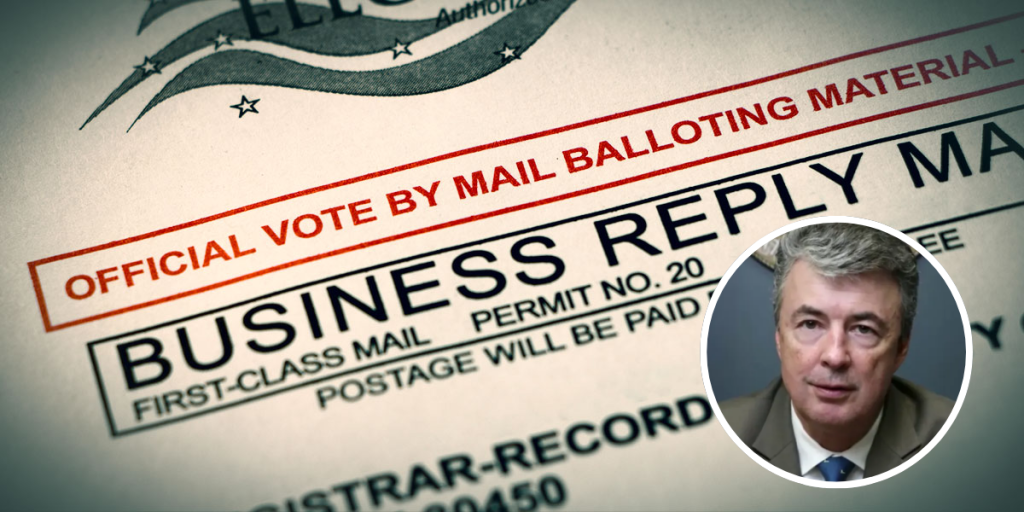U.S. Sen. Tommy Tuberville (R-AL) in late September announced legislation which would block a Biden administration proposal to increase the federal government’s ability to monitor Americans’ banking activity.
If implemented, the administration’s proposal would have forced financial institutions to remit all consumer transactions in excess of $600 to the U.S. Department of Treasury’s Financial Crimes Enforcement Network. The proposal would have given the Internal Revenue Service (IRS) increased capacity to surveil Americans’ financial records.
Tuberville’s bill, the “Protecting Financial Privacy Act,” would effectively kill the proposed IRS policy. The freshman senator embarked on an aggressive campaign promoting the bill in an attempt to garner support against the administration’s efforts.
Upon the Democrat-backed proposal receiving immense criticism from Republicans as well as consumers and banking industry leaders, the administration endorsed a watered-down version of the effort.
Under the revised proposal introduced by Senate Democrats, financial institutions would be required to provide annual reports on accounts that hold deposit and withdrawal activity of more than $10,000. Americans whose monthly expenses total at least $833 would be subject to the requirement, virtually affecting every existing income bracket under the U.S. tax code.
An additional piece of legislation authored by U.S. Sen. Tim Scott (R-SC), the “Prohibiting IRS Financial Surveillance Act,” has been introduced to further combat Democrats’ attempt to provide the IRS with what many see as overreaching authority. Both Tuberville and U.S. Sen. Richard Shelby (R-AL) have cosponsored Scott’s bill.
In announcing his cosponsoring the legislation, Shelby, former chair of the Senate Banking Committee, lambasted what he referred to as a “far-reaching” proposal.
“The Biden administration’s misguided plan to let the IRS monitor law-abiding citizens’ private financial information is dangerous and invasive, and will have far-reaching, adverse consequences,” advised Alabama’s senior senator. “This should concern all Americans who value their privacy. I am proud to join many of my conservative colleagues in the fight to keep this deeply-flawed proposal from becoming law.”
In a statement provided to Yellowhammer News, a spokeswoman for Tuberville’s office noted the senator’s early efforts to block the IRS proposal.
“Senator Tuberville introduced the Protecting Financial Privacy Act on September 27th, leading the charge in Congress as the first Member to sound the alarm about Democrats’ latest example of big brother government overreach at the expense of American’s financial privacy,” the spokeswoman said.
She added, “Since then, Democrats have been on the run as negative media coverage and outrage from everyday Americans dominate headlines. Senator Tuberville is glad to see his Republican colleagues in both the House and the Senate join efforts to block this expansion of the role of the IRS and looks forward to working with all involved to fight this radical policy.”
Presently, financial institutions are required by law to report cash transactions which exceed $10,000. The new proposal, even as revised, drastically alters the reporting requirement which would further expand the tax collection agency’s authority to monitor consumer banking activity.
Dylan Smith is a staff writer for Yellowhammer News. You can follow him on Twitter @DylanSmithAL













